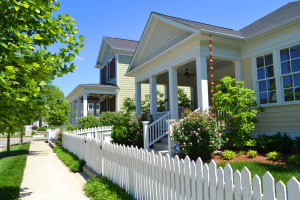Buying Your Next Property: Fixer-Uppers Or New Construction?
Is it better to buy a fixer-upper or a recently built home? As homebuyers rush to beat rising interest rates, one of the biggest questions they face is whether to purchase brand new properties or to go with the trend and acquire a fixer-upper. But how do these types of properties really stack up with each other? What factors should help guide homebuyers’ decisions? The Allure of New Construction Properties The new home smell and look can be incredibly appealing; there is no question about that. The newest properties tend to offer trendy features. They may include green building elements, and hi-tech, smart home features. New construction can also offer the ability to finance in all of the elements of a great looking property. Newer homes also give the impression that you are investing in a property with a longer lifespan. This may help with plans to rent or sell the property in the future. The Cons of New Construction Properties For every pro, there can also be a con. The price, for all intents and purposes, is the biggest drawback of buying a new home. The features of a new home definitely come at a premium. It’s not out of the ordinary to find them above market value. That means going in with a zero, or even a negative equity position. It can take time for the rest of the market to catch up, and to build up enough equity to be able to resell. The valuation issue can also sometimes mean a need to use the builder’s finance company, which may result in inferior terms compared to buying something else. As for all the fashionable new features, trends change over time and eventually homeowners will want to remodel anyway. It’s also vital to know what the end product will look like. Unless you are buying the actual model, your unit may look substantially different when you get it. Often this means a ‘designer ready’ unit, which may have no wall coverings, flooring, or appliances. Even when buying a model home; what exactly will remain when you take ownership? Depending on the stage you are purchasing at, buyers should also weigh the number of available units and maturity of the development for rental potential and reseal value. Will there be too many competing units? The Appeal of Fixer-Uppers There are a lot of sound reasons to acquire older properties. For some, it is about improving neighborhoods and communities. For others, it is finding more value. For those looking for a new residence, it can be far cheaper. Then there is the joy of being able to design and make over the property your way, with your tastes. The Cons of Fixer Uppers Buying properties that need fixing up isn’t without its challenges. Some may only need the lawn mowed and a new coat of paint. Others may need to be gutted and rebuilt. One of the big threats is knowing the difference between whether this is simply a cosmetic job or a structural rehab. While rehabbing properties can sound like a lot of fun, and it can be, buyers should ask how much they really know about the process, and how prepared they are. It might require investing in a little education. Then, while your purchase price and monthly payments may be lower, additional improvements can require extra borrowing. Do you have access to that money? If you’ll be living in the property, will your family be happy during the remodeling process? Finding Balance: Another Alternative For those seeking a happier medium, there is another alternative: existing, recently remodeled homes. Many will look like new, but be priced more fairly. They are livable, more affordable, and perhaps better for renting or reselling in the short term. Provided these homes have good ‘bones,’ they should last, and additional home improvements and upgrades can be made over time. Keeping all of this in mind, which will you buy?